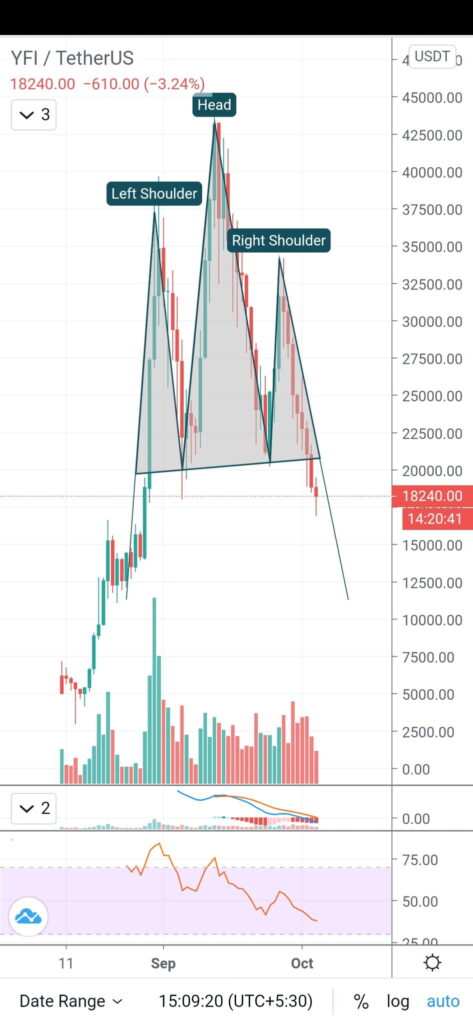 Technology Guides Bitcoin ETF: Everything You Need To Know A Bitcoin ETF combines a traditional investment instrument, the ETF, with the most popular crypto asset: Bitcoin.This creates a simple and legally compliant way to invest or trade the price of Bitcoin that is accessible on the markets that investors are already familiar with.Bitcoin In brief An ETF, or exchange traded fund, is an investment vehicle that tracks the value of its underlying asset—such as Bitcoin.Shares in a Bitcoin ETF would be tradable on a traditional stock exchange.
Technology Guides Bitcoin ETF: Everything You Need To Know A Bitcoin ETF combines a traditional investment instrument, the ETF, with the most popular crypto asset: Bitcoin.This creates a simple and legally compliant way to invest or trade the price of Bitcoin that is accessible on the markets that investors are already familiar with.Bitcoin In brief An ETF, or exchange traded fund, is an investment vehicle that tracks the value of its underlying asset—such as Bitcoin.Shares in a Bitcoin ETF would be tradable on a traditional stock exchange.
Since 2017, the US Securities and Exchange Commission (SEC) has repeatedly rejected proposals for Bitcoin ETFs.
With a market cap of just below $200 billion, Bitcoin is by far the largest and most popular cryptocurrency.One of the only ways to trade Bitcoin is to buy it outright, usually from an exchange.
However, the technical aspects of holding Bitcoin, such as wallets, Bitcoin addresses and private keys , are confusing to newcomers.The risk of losing a private key, and the amount of time it takes to educate oneself about cryptocurrencies, scare some investors away.
But what if there were an easier way to invest in Bitcoin as if it were no different from a stock? There is! It’s called a Bitcoin ETF, or “Exchange Traded Fund.” So, what is a Bitcoin ETF? 💸 An Exchange Traded Fund is an investment vehicle.🛢️ An ETF represents the value of its underlying asset, like Bitcoin, gold or oil.
📈 ETFs trade on a traditional stock exchange, and their value rises when the asset increases in price, and falls when it decreases.Did you know? The first ETF launched in 1993, and they became popular as a way for retail investors to invest in a basket of assets at once.If you wanted to invest in 500 of the largest companies in America at once, you could buy shares in a S&P 500 ETF.
A Bitcoin ETF works in much the same way as a conventional ETF.
If you want to invest in Bitcoin, you could buy shares in a Bitcoin ETF, which you could trade on a traditional stock exchange—just like you’d trade your shares in Tesla or Apple.
Bitcoin ETFs track the current price of Bitcoin , meaning that you don’t actually have to buy Bitcoin yourself and store it in your cryptocurrency wallet.
So why wouldn’t people just buy Bitcoin themselves? For most mainstream investors and traders, Bitcoin and cryptocurrencies in general are still very risky.Besides having unclear regulations , owning Bitcoin requires having a Bitcoin wallet and dealing with a crypto asset exchange ; both are still uncharted and intimidating territory for people unfamiliar with the space.
With an ETF, private keys, storage, and general security can all be managed by a trusted party instead of the investors themselves.Who Invented the Bitcoin ETF?
A Bitcoin ETF is simply a normal ETF with Bitcoin as the underlying asset being tracked—so strictly speaking, no one invented the concept.
However, the first application for a Bitcoin ETF was filed with the Securities and Exchange Commission (SEC) by the Winklevoss Bitcoin Trust in 2013 and the US Patent and Trademark Office awarded the Winklevoss’s a patent for “exchange-traded products.” How would a Bitcoin ETF work?
A Bitcoin ETF would be managed by a firm that buys and holds the actual Bitcoin; the price would be backed by the Bitcoin held in the fund.The firm would list this ETF on a traditional stock exchange, for instance the New York Stock Exchange.You could trade this ETF just as you would any other stock.
A couple of things to note: First, some ETFs, like an S&P 500, represent equity shares, so you’d get a cut of the dividend that, say, Tesla pays its shareholders, as well as any dividends paid out by the other 499 firms.
Bitcoin’s decentralized, so that wouldn’t happen.
Second, just like other ETFs, you’d also have to pay fees to the company that handles the Bitcoin ETF.This would go to its operators, but some of it would also pay the custody and management fees for the purchase and storage of the Bitcoin that underlies the ETF.
A brief history of the Bitcoin ETF July 2013 – The first Bitcoin ETF proposal is filed by the Winklevoss Bitcoin Trust.June 2018 – The Winklevoss’s second Bitcoin ETF proposal is rejected by the SEC.
February 2020 – Wilshire Phoenix becomes the latest project to have its Bitcoin ETF project rejected by the SEC .
September 2020 – The world’s first Bitcoin ETF is listed on the Bermuda Stock Exchange .Why would you use a Bitcoin ETF?
There are a few reasons why ETFs are preferable to buying Bitcoin directly.
Holding Bitcoin places the burden of security squarely on you.This means that you would be responsible for keeping your own private key safe.This may comprise buying a hardware wallet to protect purchased Bitcoin or storing private keys in a secure manner.
Buying Bitcoin yourself also exposes you to the risk of exchanges, many of which have been hacked at least once.
You’d also have to work out how to file taxes for each purchase and sale of Bitcoin.And if you don’t know how to do all of these things, you’d have to research the crypto rabbit hole to work everything out.ETFs solve these problems by offloading the responsibility of security and storage to someone else.
Bitcoin ETFs would also offer new types of trading opportunities.One is “short-selling.” This is, in effect, a bet against Bitcoin.It works by borrowing the ETF and selling at the current market price.
The position is then closed by re-buying the ETF at a (hopefully) lower price.What’s so special about a Bitcoin ETF?
Since ETFs are generally understood by traditional investors, but cryptocurrencies are not, many crypto advocates believe that a Bitcoin ETF could bring more money into the crypto market.It creates a safe bridge for mainstream and institutional investors to make bets on the price of Bitcoin.
If it’s far easier to invest in a Bitcoin ETF, the argument goes, more people are likely to do it; Bitcoin is one of the best performing assets of the decade, and its volatility and potential risk make it attractive for high-risk investors.
A Bitcoin ETF is expected to bring a new level of mainstream trustworthiness and acceptance.Bitcoin ETF proposals continue to be proposed and pushed to the SEC despite being rejected over the last several years because one approval could open up a floodgate of new investments into the crypto space.
Essentially, an approval by the SEC means that institutional investors would be able to trade and invest in the price of bitcoin.That also means that Bitcoin joins the rest of the securities market and can be easily exchanged for Tesla stock, US bonds, gold, oil or any other traditional asset.Did you know? Cannabis or marijuana ETFs have become popular for many of the reasons that a Bitcoin ETF would likely become popular.
Just like crypto, the marijuana industry is viewed as risky and uncertain by traditional investors who still want the opportunity to profit from it.Why has the SEC blocked the creation of a Bitcoin ETF?
While Bitcoin ETFs may sound attractive, few exist worldwide, and there aren’t any Bitcoin ETFs in the US.
Since 2017, the US Securities and Exchange Commission (SEC) has repeatedly rejected proposals for Bitcoin ETFs.The major issue, according to SEC Chairman Jay Clayton, is that Bitcoin’s price is prone to manipulation.And even if a Bitcoin ETF only drew prices from the most scrupulous cryptocurrency exchanges, Bitcoin’s price could be manipulated on less reputable exchanges with looser restrictions.
SEC Chairman Jay Clayton reiterated this a year later at Coindesk’s conference : “The prices retail investors are seeing are the prices they should rely on, and free from manipulation—not free from volatility, but free from manipulation.”
SEC approval would be a major victory for Bitcoin towards being seen as a legitimate investment.
How do you invest in a Bitcoin ETF?
As of October 2020, there are no Bitcoin ETFs available for trade in the United States.They have not been approved by the SEC because Bitcoin is still seen as an extremely volatile market that is highly susceptible to fraud and price manipulation.Are there exchanges with Bitcoin ETFs?
Yes! Some jurisdictions remain open to Bitcoin ETFs.In September 2020, Bermuda approved an application for a Bitcoin ETF to debut on the Bermuda Stock Exchange .The ETF will be managed by Hashdex , a Brazilian fund manager, in partnership with NASDAQ.
And the Gibraltar Stock Exchange listed a kinda-Bitcoin ETF in September; the ETF, called The Bitcoin Fund , is also listed on the Toronto Stock Exchange.
Grayscale, a large US cryptocurrency investment firm, offers the Grayscale Investment Trust, a publicly-traded product.
The Grayscale Investment Trust is a big pool of money that Grayscale’s customers have (privately) invested in.
This is not a true Bitcoin ETF, since it represents shares in the investors’ Grayscale’s trust.The trust often trades at a hefty premium; a Bitcoin ETF, however, would reflect Bitcoin’s true price.But, the effect is the same: With Grayscale, you can buy shares that represent investor’s purchase of Bitcoin, and trade them on a stock exchange.
The Future of Bitcoin ETFs
Although Bitcoin is still seen by many as a highly risky investment, the times they are a-changin’.Since its inception over a decade ago, Bitcoin has been getting more mainstream recognition and support from respectable entrepreneurs, investors, politicians, and regulators.
In the 2019 congressional hearing for Facebook’s upcoming Libra cryptocurrency project, many politicians spoke highly of Bitcoin and blockchain technologies in general.
There is a widespread belief among the crypto community that it will only be a matter of time before this general acceptance translates into a fully approved Bitcoin ETF.Jay Clayton, the SEC Chair, remains open to a Bitcoin ETF , or at least a tokenized version of a current ETF.But until the market satisfies his concerns about manipulation, a Bitcoin ETF won’t happen in the US.
The Bitcoin ETF listed on the Bermuda Stock Exchange may function as a trial run for a listing on an American stock exchange.Whether the listing is successful or not, it will likely be used in any future arguments with the SEC.Should the SEC clear a Bitcoin ETF, many more will likely spring up thereafter.Once the floodgates are open, other jurisdictions may take note.
Disclaimer The views and opinions expressed by the author are for informational purposes only and do not constitute financial, investment, or other advice.https://decrypt.co/resources/bitcoin-etf-explained-guide-learn-easy .
